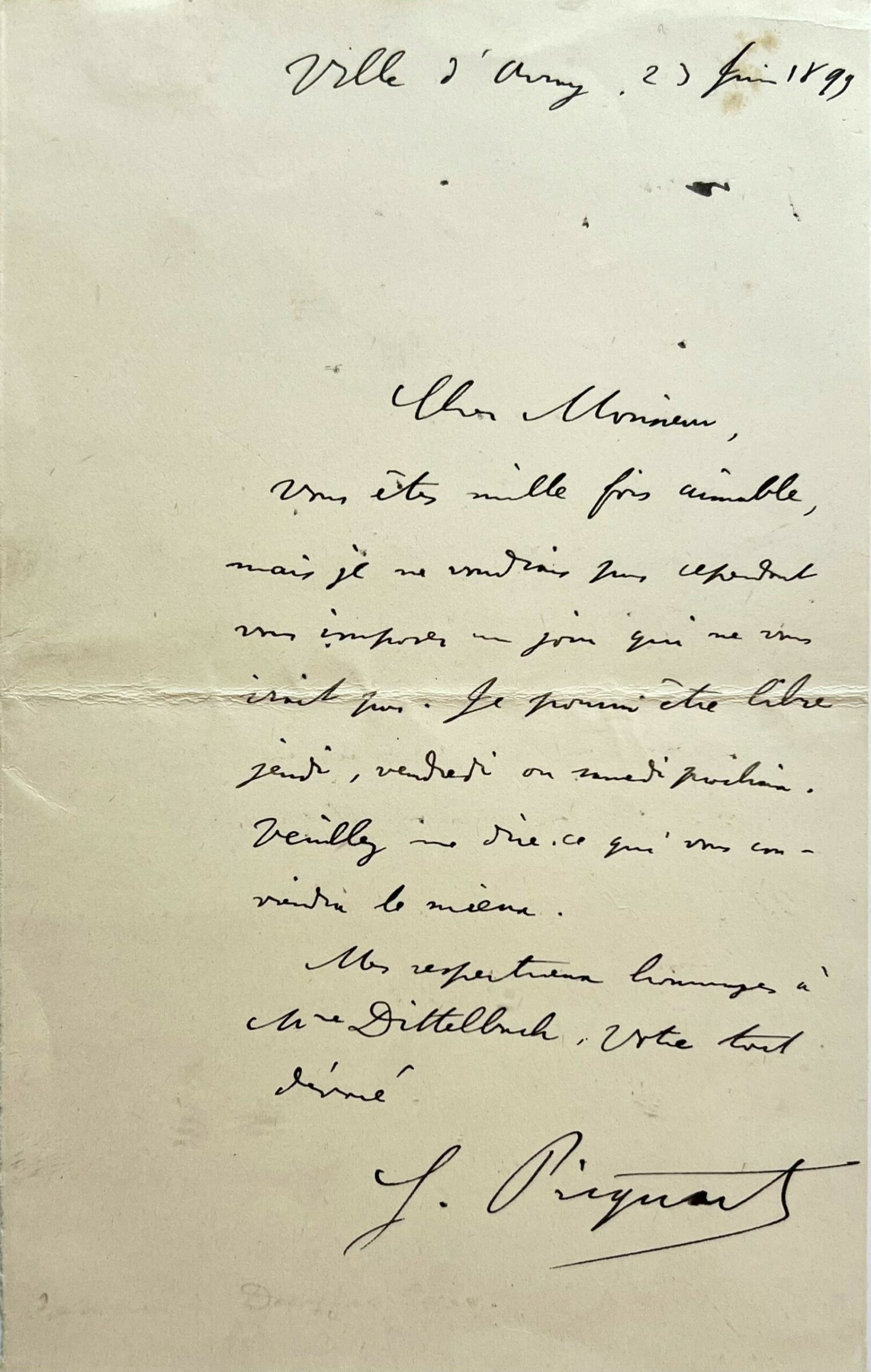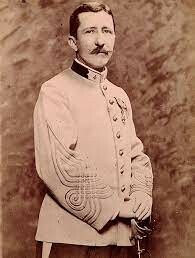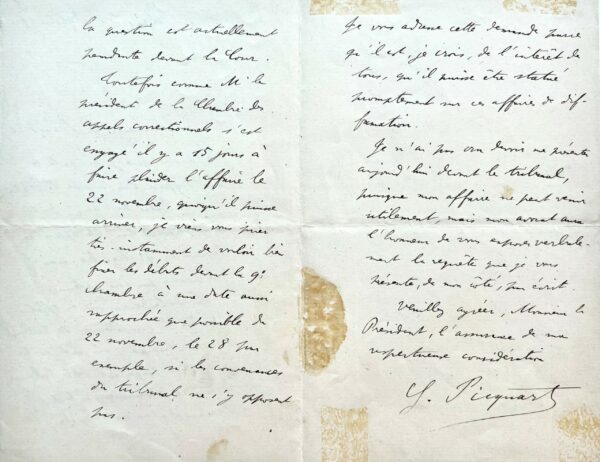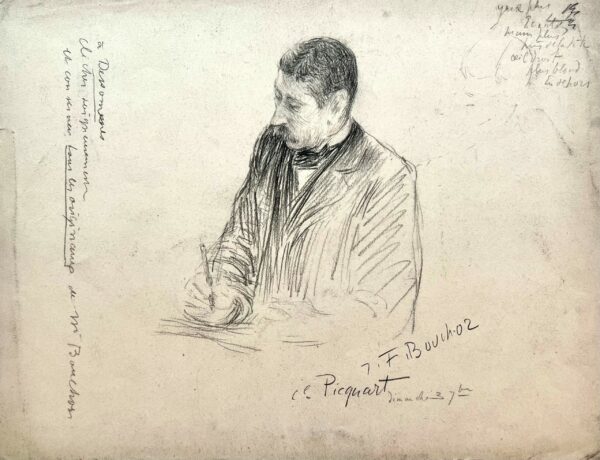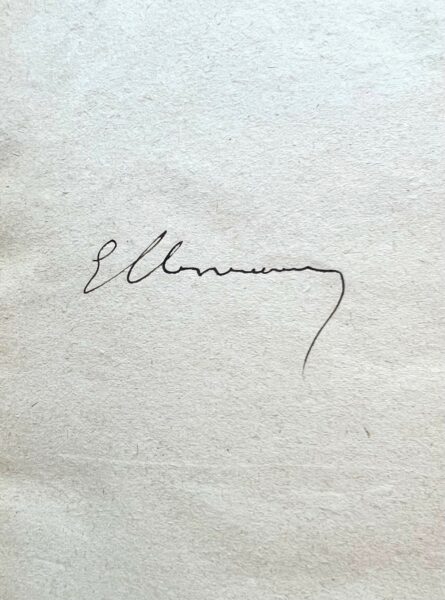PICQUART, GEORGES-MARIE. (1854-1914). French officer, Dreyfus’ instructor at the War College and chief of military intelligence. In 1896, following the interception of a letter (the petit bleu) from the German military attaché in Paris to French Major Ferdinand Walsin Esterhazy, Picquart opened an investigation into Esterhazy, the spy whose treason had been pinned on Dreyfus. ALS. (“G. Picquart”). 1p. 8vo. Ville d’Avray, June 23, 1899. To Mr. Dittelbach. In French with translation.
“You are a thousand times kind, but I would not, however, impose on you a day that would not be convenient to you. I could be free next Thursday, Friday or Saturday. Please tell me what suits you best.
My respectful homages to Madame Dittelbach, your most devoted…”

